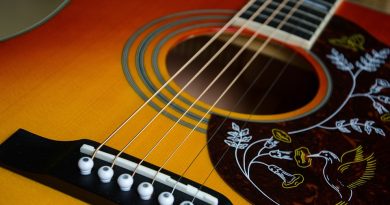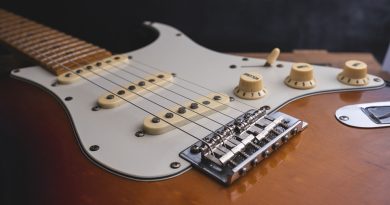Unleash Your Inner Musician: A Beginner’s Guide to Guitar Improvisation Techniques
Unleash Your Inner Musician: A Beginner’s Guide to Guitar Improvisation Techniques
Introduction
Guitar improvisation is a skill that allows you to express your creativity and make music in the moment. Whether you’re a beginner or an experienced guitarist, learning improvisation techniques can take your playing to the next level. In this article, we will explore some essential tips and tricks for anyone looking to unleash their inner musician through guitar improvisation.
Understanding the Basics
Before diving into improvisation techniques, it’s important to have a solid understanding of the basics of guitar playing. This includes knowing your instrument, understanding music theory, and developing your ear for music. By mastering these foundational skills, you will have a strong foundation on which to build your improvisation skills.
Building Your Repertoire
When it comes to improvisation, having a solid repertoire of chords, scales, and licks is key. Start by learning the basic chords and scales in different keys, as well as common chord progressions. This will give you a strong foundation from which to build your improvisational skills. You can also learn some common licks and phrases that you can incorporate into your improvisations.
Developing Your Ear
One of the most important skills for any improvising musician is developing your ear. This means being able to listen to music and play along, pick out melodies and chords by ear, and improvise freely without relying on sheet music. Practicing ear training exercises, such as playing along to songs and transcribing solos, can help you develop this skill.
Experimenting with Different Styles
Guitar improvisation can take many forms, from jazz and blues to rock and pop. Experimenting with different styles can help you develop your own unique voice as a guitarist. Try listening to different genres of music and incorporating elements from each into your improvisations. This will not only make your playing more interesting but also help you expand your musical horizons.
Learning New Techniques
There are a wide variety of techniques that can be used in guitar improvisation, from bending and sliding to tapping and hammer-ons. Learning new techniques can help you add depth and expression to your playing. Practice these techniques regularly and incorporate them into your improvisations to take your playing to the next level.
Practicing with Backing Tracks
One of the best ways to practice guitar improvisation is by playing along to backing tracks. Backing tracks provide a musical backdrop for you to improvise over, allowing you to experiment with different scales, chords, and licks in a real-world setting. There are many websites and apps that offer free backing tracks in various styles and keys, making it easy to find tracks that suit your preferences.
Jamming with Other Musicians
Another great way to improve your improvisation skills is by jamming with other musicians. Find a group of like-minded musicians to play with, whether it’s in a band, at an open mic night, or just in your living room. Jamming with others can help you develop your listening and communication skills, as well as provide valuable feedback and inspiration for your playing.
Listening and Transcribing
Listening to great guitarists and transcribing their solos is a valuable way to improve your improvisation skills. By studying the playing of masters such as Jimi Hendrix, Eric Clapton, and Stevie Ray Vaughan, you can learn new licks, phrasing, and techniques to incorporate into your own playing. Transcribing solos also helps develop your ear and musical memory, making it easier to improvise on the spot.
Experimenting and Having Fun
Above all, guitar improvisation should be a fun and enjoyable experience. Don’t be afraid to experiment, make mistakes, and try new things. Remember that improvisation is about expressing yourself and being in the moment, so let go of any expectations and just enjoy the process. With practice and dedication, you can unleash your inner musician and become a master of guitar improvisation.
Conclusion
Guitar improvisation is a skill that can take your playing to new heights and allow you to express your creativity in a unique way. By mastering the basics, building your repertoire, developing your ear, experimenting with different styles, learning new techniques, and practicing regularly, you can become a proficient improvising guitarist. Remember to have fun, be open to new ideas, and let your inner musician shine through in your playing. With dedication and practice, you can unleash your inner musician and become a master of guitar improvisation.






